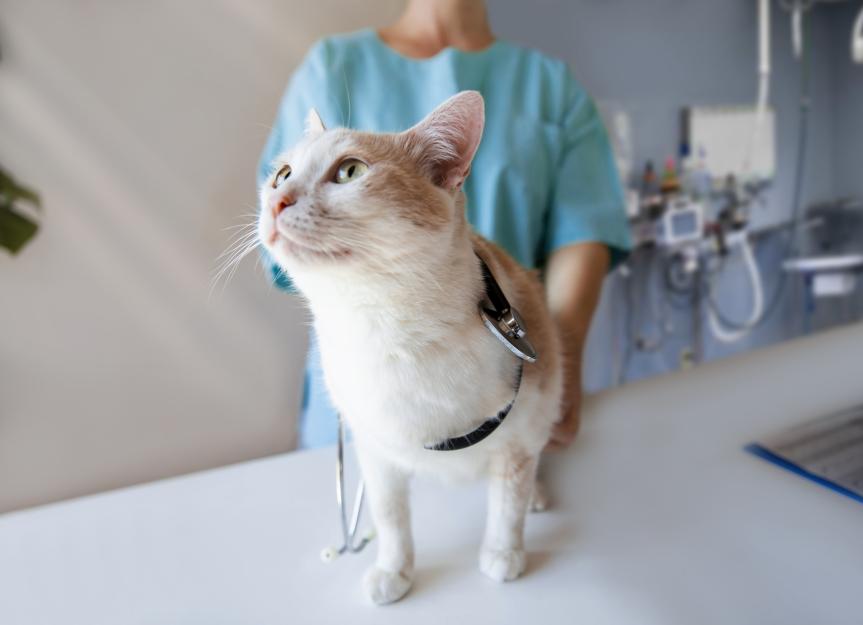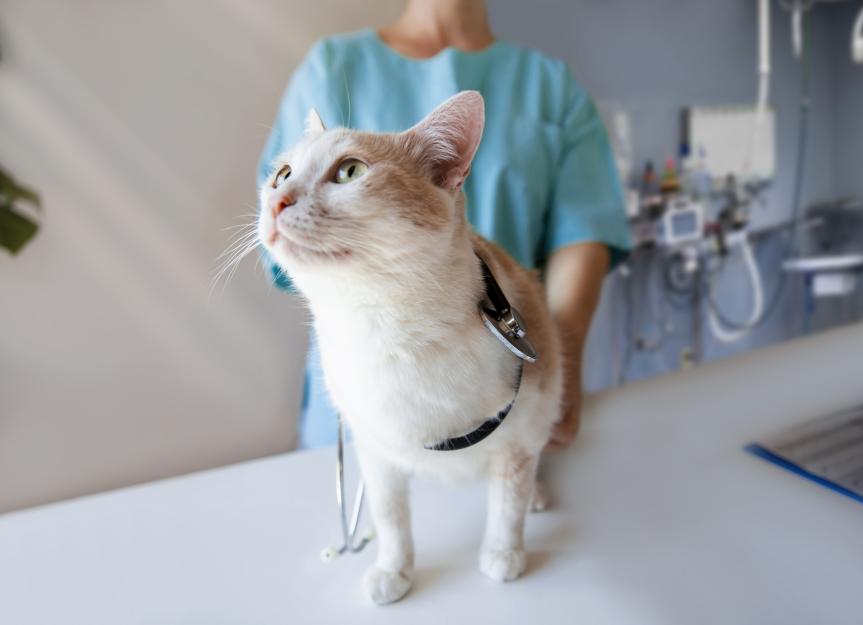
A cat spay or neuter is a common surgical procedure, and it’s one that strengthens the human-animal bond.
Not only does this procedure limit pet overpopulation, but it prevents unwanted and risky behaviors and can lead to a healthier future for your cat.
Read on to learn more about cat neuter, the benefits of having your cat neutered, and the different options available regarding the costs to neuter a cat.
Key Takeaways
- A cat neuter is a common surgical procedure.
- Cat neuters vary in price depending on where they are performed, either due to cost of living or the type of veterinary practice.
- Some veterinarians partner with their local shelter to offer these surgeries in their clinics on a voucher basis, so be sure to ask your vet if such a voucher exists in your area.
What Is a Cat Neuter?
Medically referred to as orchiectomy, a cat neuter, or more commonly termed “castration” or “sterilization,” is the surgical removal of a male cat’s reproductive organs (testicles).
While a cat neuter is one of the simplest, safest, and most routine surgical procedures performed in veterinary medicine, complications do rarely occur.
A cat neuter is often treated as an outpatient visit and rarely requires overnight hospitalization. Your cat will be anesthetized throughout the procedure.
The veterinary team will remove the hair around the scrotum and make a small incision over each testicle, which will be subsequently ligated, or tied off, and removed. The incisions will be left open to heal.
There is minimal recovery time, typically only requiring two weeks of restricted activity.
How Much Do Cat Neuters Cost?
Cat neuters vary in price depending on where they are performed, either due to cost of living or the type of veterinary practice.
Practices often charge anywhere from $100 to $500 to neuter a cat. Some animal shelters, rescues, or non-profit businesses may offer cat neuters at subsidized or discounted rates.
Factors that affect the cost of neutering a cat include:
Additional fees may be charged if your cat is cryptorchid, meaning one or both testicles have failed to descend into the scrotum.
This is because the surgical procedure is more invasive and requires additional time.
Benefits of a Cat Neuter
Neutering your cat is recommended for several reasons.
First, it’s a primary step toward creating a suitable and long-lasting feline companion. Because neutering a cat decreases undesirable and often frustrating behaviors that intact male cats typically exhibit, the procedure improves the bond between the cat and the cat parent.
Once your cat reaches sexual maturity, around 4–6 months of age, behaviors such as urine spraying, territorial aggression and roaming, and subsequent fighting are more likely to develop in unneutered cats.
These risky behaviors can lead to the cat acquiring debilitating diseases, such as FIV (feline immunodeficiency virus) and FeLV (feline leukemia virus), as well as infections and pain.
Another benefit of neutering your cat is eliminating his risk of developing testicular tumors or testicular cancer.
Finally, neutering your cat will help prevent feline overpopulation in your area.
What To Do if You Can’t Afford To Have Your Cat Neutered
Not all cat parents may be able to afford their cat’s neuter surgery.
Fortunately, many animal shelters and rescues offer this procedure for free or at a reduced rate. Search the web for spay/neuter clinics in your area.
A benefit of adopting a kitten through your local shelter or humane organization is that he most likely will have already been neutered, thereby eliminating this financial hardship.
Some veterinarians partner with their local shelter to offer these surgeries in their clinics on a voucher basis, so be sure to ask your vet if such a voucher exists in your area.
Alternatively, financing options—such as CareCredit or Scratchpay—may be available for you to apply and use toward your cat’s neuter procedure.
And, while you should consider pet insurance for future emergencies or illnesses your cat might face, most insurance plans won’t cover your cat’s neuter surgery because it’s considered an elective procedure.
Regardless of where your cat is neutered or how the procedure is financed, the benefits certainly outweigh the risks. Be sure to include this important surgery in your health checklist for when you adopt your next kitten.
It’s never too late—if your cat hasn’t been neutered, reach out to your veterinarian to schedule a consult for the procedure.



